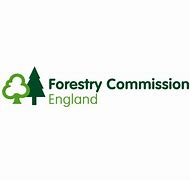
Delivering the London Urban Forest Plan
Aims
In 2022, the London Urban Forest Partnership was awarded funding from Defra's Trees Call to Action Fund over three year period to March 2025. The funding has increased the capacity of eight Partnership members to accelerate delivery of nine priority actions in the London Urban Forest Plan. You can find out more about these nine projects below.
With all projects now complete, an evaluation is underway to help assess and capture outcomes and lessons learned. When available, findings will be made available on this page.
Sub-projects
The TCAF-funded ‘Delivering the London Urban Forest Plan’ programme consisted of the following projects:
The GLA hosted a three-year London Urban Forest Plan (LUFP) coordinator post. The post helped deliver, monitor and promote the LUFP and managed the TCAF programme.
The LUFP coordinator has created a resource hub of information about London’s Urban Forest. This is designed to help groups and individuals learn about and connect to the city’s trees and woodlands.
Mapping of woodland creation opportunities helped support and target advocacy work for woodland creation in London. This project particularly focused on the Green Belt.
The survey was the first of its kind to seek the perspectives on the skills relating to trees and woodlands from London-based individuals and organisations working within the arboriculture sector.
Initiated from the preconception that there is a skills gap, this survey was designed to provide an insight into the experiences of those managing London’s urban forest. It asked a range of questions relating to the perceived demand on services, and to skills needed now and in the future.
This project developed a London Woodland Condition Self-Assessment Tool volunteer groups that are involved with the management of their local woodlands woodland. The tool is designed to facilitate an assessment of the conditions of various aspects of a woodland site (e.g. ground cover, signages, canopy, etc.), offering an indication of the improvements that could be made.
Smaller sites less than 2ha have been absent from the Ancient Woodland Inventory. These sites are particularly relevant to London. This project supported more ground surveys to help fill some of this gap.
This project helped produce a London-wide strategy for wild deer, addressing data collection needs, approach to communication as well as sharing of good practice and collaboration on management to support deer welfare and enhance London woodland's resilience to wild deer presence.
Volunteers helped record sightings of wild deer by taking part in the London Deer Survey.
The project funded two Tree Planting Coordinator positions to deliver tree planting within and around schools in areas of multiple deprivation and low canopy cover. Following a pilot in Lewisham the approach was rolled out to other Boroughs.
The project included recruited volunteers to become tree-guardians, helping to care and monitor the trees planted.
This engagement project focused on young people (16-24), providing participants with the opportunity to increase their knowledge and skills around trees, woodlands and arboriculture through discussions, training and hands-on projects delivered in places with high deprivation and low/medium tree canopy in London.
This project offered community groups involved in woodland management some training and mentoring on how to better look after their sites. This included learning how to use the LWT's London Woodland Conditions Self-Assessment Tool.
Trees Call to Action Fund
This project was funded by the Trees Call to Action Fund. The fund was developed by Defra in partnership with the Forestry Commission and was administered by The National Lottery Heritage Fund.
The Trees Call to Action Fund supported projects designed to protect trees and woodlands, boost forestry skills and jobs, develop woodland creation partnerships, and engage communities with nature. Grants of between £250,000 and £500,000 supported 12 projects across England in total.
Supported partnership



Need a document on this page in an accessible format?
If you use assistive technology (such as a screen reader) and need a version of a PDF or other document on this page in a more accessible format, please get in touch via our online form and tell us which format you need.
It will also help us if you tell us which assistive technology you use. We’ll consider your request and get back to you in 5 working days.